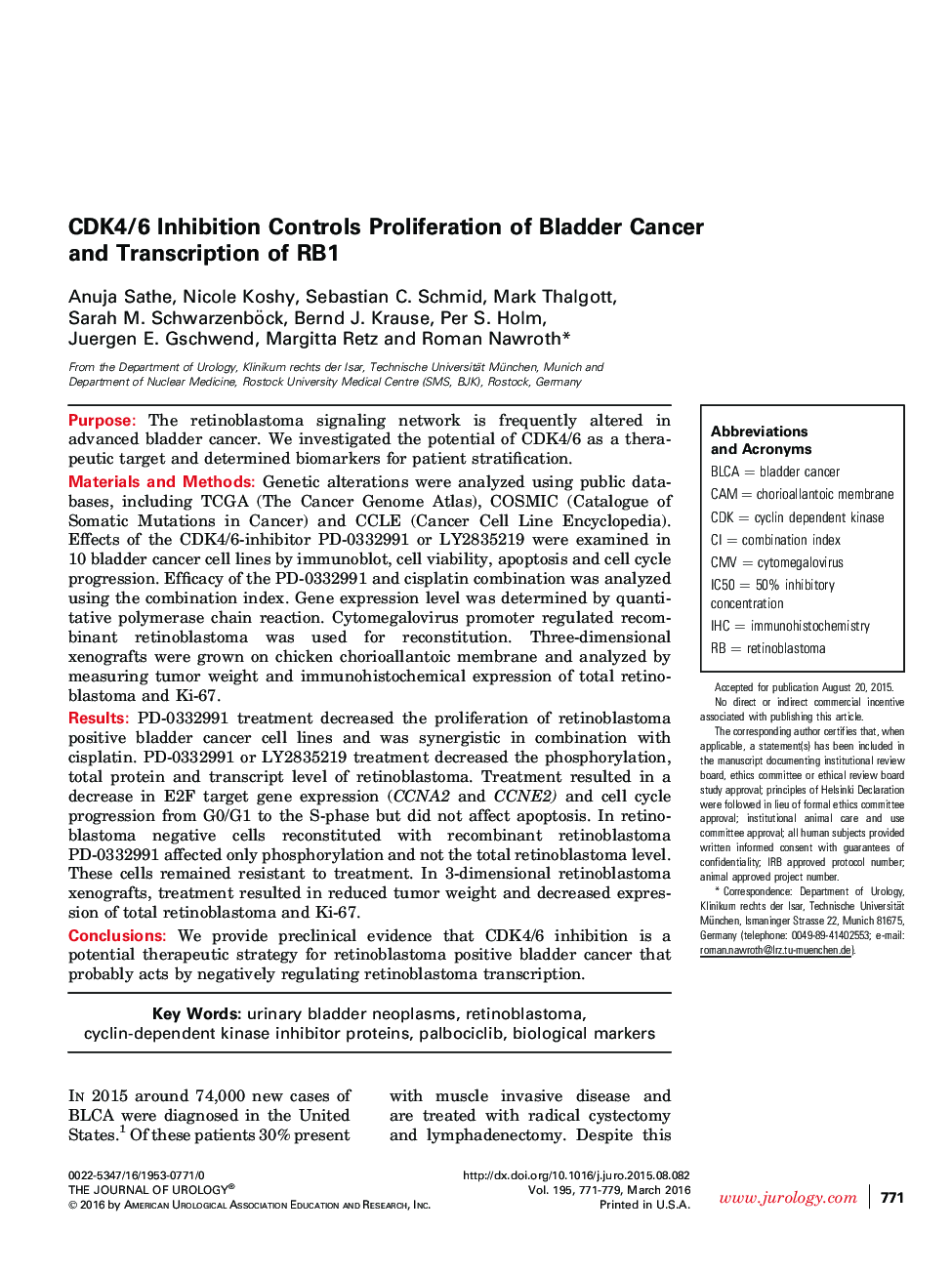| Article ID | Journal | Published Year | Pages | File Type |
|---|---|---|---|---|
| 3859153 | The Journal of Urology | 2016 | 9 Pages |
PurposeThe retinoblastoma signaling network is frequently altered in advanced bladder cancer. We investigated the potential of CDK4/6 as a therapeutic target and determined biomarkers for patient stratification.Materials and MethodsGenetic alterations were analyzed using public databases, including TCGA (The Cancer Genome Atlas), COSMIC (Catalogue of Somatic Mutations in Cancer) and CCLE (Cancer Cell Line Encyclopedia). Effects of the CDK4/6-inhibitor PD-0332991 or LY2835219 were examined in 10 bladder cancer cell lines by immunoblot, cell viability, apoptosis and cell cycle progression. Efficacy of the PD-0332991 and cisplatin combination was analyzed using the combination index. Gene expression level was determined by quantitative polymerase chain reaction. Cytomegalovirus promoter regulated recombinant retinoblastoma was used for reconstitution. Three-dimensional xenografts were grown on chicken chorioallantoic membrane and analyzed by measuring tumor weight and immunohistochemical expression of total retinoblastoma and Ki-67.ResultsPD-0332991 treatment decreased the proliferation of retinoblastoma positive bladder cancer cell lines and was synergistic in combination with cisplatin. PD-0332991 or LY2835219 treatment decreased the phosphorylation, total protein and transcript level of retinoblastoma. Treatment resulted in a decrease in E2F target gene expression (CCNA2 and CCNE2) and cell cycle progression from G0/G1 to the S-phase but did not affect apoptosis. In retinoblastoma negative cells reconstituted with recombinant retinoblastoma PD-0332991 affected only phosphorylation and not the total retinoblastoma level. These cells remained resistant to treatment. In 3-dimensional retinoblastoma xenografts, treatment resulted in reduced tumor weight and decreased expression of total retinoblastoma and Ki-67.ConclusionsWe provide preclinical evidence that CDK4/6 inhibition is a potential therapeutic strategy for retinoblastoma positive bladder cancer that probably acts by negatively regulating retinoblastoma transcription.
